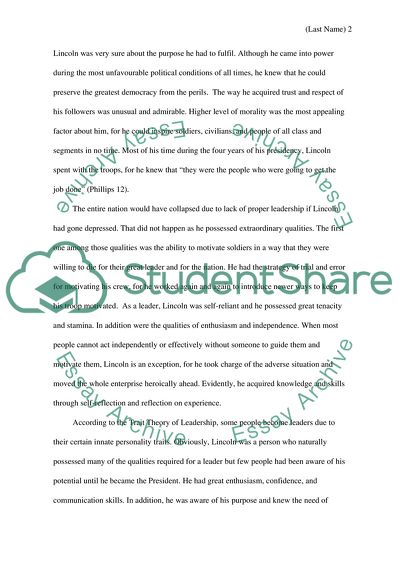Cite this document
(Abraham Lincoln as a Strategic Leader Term Paper, n.d.)
Abraham Lincoln as a Strategic Leader Term Paper. https://studentshare.org/history/1797979-leadership-essay
Abraham Lincoln as a Strategic Leader Term Paper. https://studentshare.org/history/1797979-leadership-essay
(Abraham Lincoln As a Strategic Leader Term Paper)
Abraham Lincoln As a Strategic Leader Term Paper. https://studentshare.org/history/1797979-leadership-essay.
Abraham Lincoln As a Strategic Leader Term Paper. https://studentshare.org/history/1797979-leadership-essay.
“Abraham Lincoln As a Strategic Leader Term Paper”. https://studentshare.org/history/1797979-leadership-essay.


